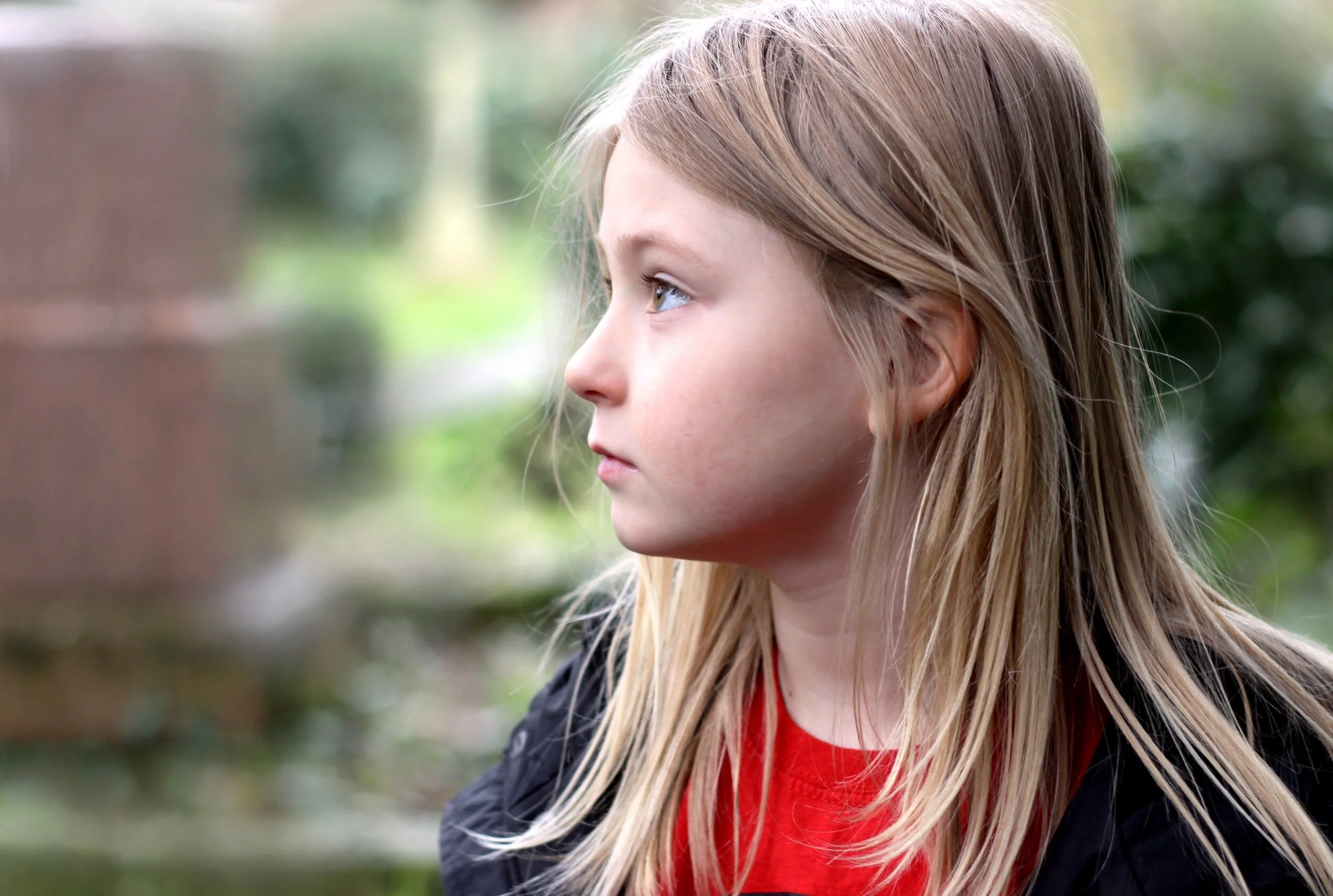The term “separation anxiety” might conjure up images of a toddler crying in the window as you pull out of the driveway. While it’s true that separation anxiety is super common in preschool kids, older children and even teenagers can be affected by it, too. As I’m writing this post, we are (still) in the middle of the COVID pandemic, which has kept kids of all ages at home with their parents for most of each day. I’ve noticed more older kids and teens coming into my virtual office these days with separation anxiety struggles. In this post, I’ll share some signs to look out for if you suspect that Separation Anxiety Disorder is the cause of your older child’s worries.
How Common is Separation Anxiety in Kids and Teens?
Separation anxiety is so common in young children that it’s considered a normal part of child development. In fact, it can be seen as a positive sign: it means that a child feels attached to his caregiver, which is always a good thing.
Historically, little children have needed to stay in close proximity to their parents in order to survive. Feeling anxious about being far away from a parent makes sense! This is why we often talk about separation anxiety in little kids, but don’t usually start referring to it as Separation Anxiety Disorder until about age 6.
Separation Anxiety Disorder is pretty common among older children. It affects roughly 4-5% of American kids between the ages of 7 and 11. If your tween child is struggling to leave home and do things away from the family, she’s not alone.
The older kids get, the less common Separation Anxiety Disorder seems to be. About 3.9% of young teenagers (12-14) are dealing with separation anxiety symptoms. The numbers go down even further for older teenagers, to about 1.3% for teenagers ages 14-16. Although it used to be considered a children’s condition, some research suggests that a small percentage of adults continue to struggle with Separation Anxiety Disorder into adulthood.
What Causes Separation Anxiety In Older Kids?
There’s no single cause for separation anxiety in older kids. As is the case with many mental health problems, a combination of genetics and life events seem to make some children more vulnerable to it than others.
Some children may simply be born with more anxious temperaments than others, kids can inherit these anxious traits from their parents. Kids with Separation Anxiety Disorder are more likely to have other types of anxiety disorders as well, like Obsessive Compulsive Disorder, Agoraphobia, and panic attacks. IF a child is naturally worry-prone because of their biology, they’ll be more predisposed to all these forms of anxiety.
Children who have been through stressful situations are also more likely to develop separation anxiety. Trauma experiences—especially ones that involved a child being separated or removed from a parent—can make it much harder for a child to be away from parents in the future. The loss of a loved one can also prompt children to cling more closely to surviving family members. Sometimes, less serious changes can also trigger separation anxiety, such as a big move or switch to a new school.
Both genetics and environment are usually to blame for separation anxiety. If your child has a naturally anxious temperament, they may be able to cope just fine as long as life remains calm. However, a big disruption can really activate their anxiety, and sensitive kids may have a harder time bouncing back. These kids may try to cope with their overwhelming anxiety by staying close to a parent, which can sometimes get in the way of day-to-day life.
What Are the Symptoms of Teen Separation Anxiety?
We all know that the major symptom of separation anxiety is fear of being away from a parent, and this is true for all kids from toddler age through the teens. However, all kids are different, and separation anxiety can manifest in various ways based on age.
Older children and teens may be less likely to voice their worries about being away from parents. This might be due to embarrassment or shame about struggling with something seen as babyish. Parents may need to look to their child’s behavior for clues that Separation Anxiety Disorder is behind their teen’s struggles.
Here are the symptoms that therapists use to diagnose Separation Anxiety Disorder in kids and teens:
Anxiety about being away from an important caregiver that is excessive and not typical for the child’s age. This can lead kids or teens to avoid separating from parents altogether.
The anxiety or avoidance is persistent and lasts at least 4 weeks.
The child or teen suffers negative consequences due to their anxiety, and it may interfere with school, work, or friends.
The problems aren’t better explained by another reason or another form of anxiety.
Now that we know the symptoms to look for, let’s see how these problems might look in teenagers or older kids.
Signs of Separation Anxiety to Look Out For
Here are a few signs of teen separation anxiety to look out for:
Refusing to go to school: this is a big one. Plenty of teenagers are reluctant to go to school for all kinds of reasons. If your child’s dread about school looks more like anxiety or sheer panic, without a clear reason, social anxiety could be an underlying cause.
Worrying about the health or safety of family members: many kids with separation anxiety fear that something terrible will happen to their caregivers if they let them out of their sight. This can be true for teens, as well. Teens are more able to imagine worst-case scenarios than younger children. They may be especially prone to these worries if they’ve survived a trauma or experienced the serious illness or injury of a family member.
Fears about kidnapping or getting lost: teens are very aware of stranger danger and other safety risks. If their anxiety levels are high, they may be overly worried about their safety when they are away from home. The fear is out of proportion to the situation, and might hold them back from going on outings alone.
Body symptoms: for some people, anxiety mainly shows up as physical illness rather than emotional upset. If that’s the case for your teen, you’ll likely notice that the symptoms start shortly before a separation and resolve once the threat of being away from parents has passed. Of course, it’s always a good idea to rule out medical causes before assuming this is a sign of anxiety.
Avoiding outings with friends: difficulty being away from home might lead teens to turn down social invites they would otherwise be interested in. It may be too anxiety-provoking to participate in activities if you aren’t there, too. This can negatively impact a teen’s social life.
Meltdowns: you may notice your teen having meltdowns when it’s time to leave the house. They may seem unexpected for your child’s age, and even resemble the tantrum of a younger child. It’s a sign your child is so overwhelmed with anxiety that she’s moved past her ability to cope.
Begin Counseling For Teens With Separation Anxiety in North Carolina
Whether it’s due to an anxious temperament, life stress, or the pandemic, counseling can help anxious kids and teens get back on track. It’s really satisfying to watch teens master their separation anxiety through cognitive behavioral therapy. Sometimes, the process is surprisingly quick once teens feel empowered and they have the right tools!
If you are looking for therapy for a preteen or young teenager, I may be able to help at my Davidson, North Carolina counseling office. If your family lives anywhere else in North Carolina, New York, or Florida, we can meet virtually in my secure telehealth platform. If you’d like to learn more, contact me here. I’m always happy to answer questions!




